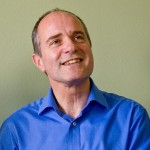 Bishop Lee describes the place the resurrection holds for him as a scientist and disciple of Jesus.
Bishop Lee describes the place the resurrection holds for him as a scientist and disciple of Jesus.Yesterday evening I had supper with a colleague and friend who is a senior scientist and a philosopher. We always seem to have great conversations and this one was no different. My friend lets call him Alan describes himself as an atheist but is one of the most open people I know. At the heart of his openness is a genuine pursuit of truth. For Alan, scientific endeavour offers the surest route for establishing what truth is.
One of the reasons our conversations are so engaging is because Alan genuinely wants to know how Christians who are scientists hold tensions between their faith and a scientific worldview. This theme emerged again as I recorded a piece on local radio for British Science Week. The presenter asked me which had taken precedence in my life Christian belief or scientific understanding. My experience is that they have always interwoven.
Having gone along to Sunday School from childhood I cannot say whether there was a period that God, and in particular the person of Jesus, was not absent from my thinking. Yet as a young teenager I also came to a point where I realised the significance of questions related to truth and commitment to the Christian faith. Put simply, was belief something I had been brought up with but now needed to put behind me - or was it something that needed to more radically shape my life and choices? If God has truly come among us in Jesus, been crucified and buried but raised to a new life, that reality required a serious response and a commitment. Was this true and how might I judge?
One aspect was undoubtedly the impact I saw in the lives of peers they provided examples of what being a disciple entailed. However, what might be called my scientific mind-set (albeit less well developed then than now) caused me to focus on that fundamental event the resurrection. In particular I reflected on what could have caused Jesus followers to become the people they became, and proclaim the things they did, if there had not been a transformative experience after Christs brutal crucifixion. For me, the weight of evidence was critical in making that step of commitment. It could not be solely described as rational, but it was reasonable, coherent and consistent.
In my dinner conversation with Alan it was the crucifixion and resurrection of Jesus which I marked as the datum point and not only so for me but for Christian faith and understanding. These linked events change everything. One of the quotes the radio presenter had for me was attributed to Professor Stephen Hawking: miracles are not consistent with scientific understanding. I humbly do not believe that to be the case the core miracle of Jesus resurrection gives birth itself to a worldview which does not diminish the place and importance of scientific learning but sets it within a far greater reality.
In the Church of England, we regard the insights of science as vital and often reframe or challenge our assumptions, prejudices and practices. Yet the resurrection of Jesus, with its promise of a new beginning for creation itself, refutes the trajectory science predicts for the cosmos. The resurrection declares that the universe is not ultimately destined for futility but transformation. This is a truth which Alan recognised as holding a life changing hope even if he personally cannot embrace it. Our task is to make it visible and what is at work in us is the very power which raised Jesus from the dead.
+Lee